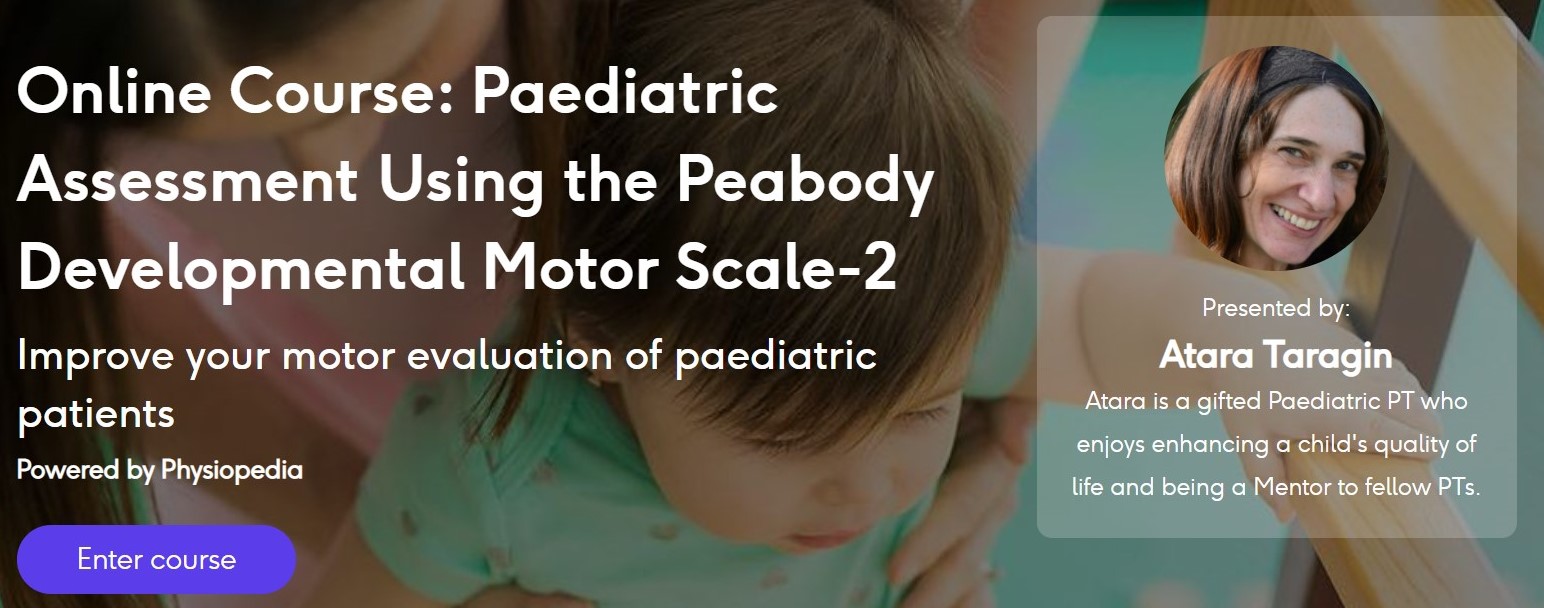This new online course will make sure you confident in using the PDMS-2 in clinical practice.
The Peabody Developmental Motor Scales- 2 (PDMS-2) is recognised as the first nationally standardised assessment tool to provide separate gross and fine motor scores for children between the ages of birth to 71 months old. The application of the PDMS-2 helps to estimate a child’s motor competence relative to his or her peers. It can identify delays or disorders in the child’s development and it also makes use of specific skill deficits to develop individualised goals in the treatment of children with developmental delays.
Deep dive into the Peabody Scale with Atara Taragin
Atara Taragin is an expert in using the Peabody Development Motor Scale. She is a paediatric physiotherapist and mentor with over 28 years experience and in this new course Atara discusses the administration and scoring of the gross motor function section of the PDMS-2. You will be taken through the history and development of the scale which will enable you to evaluate the strengths and weakness of the scale.
Learning Outcomes
At the end of this course you will be able to:
- Describe the Peabody Developmental Motor Scale 2 and its benefits as an assessment tool for the evaluation of the gross motor development in young children
- Discuss at least four ways in which the PDMS-2 can be utilised in various paediatric populations to achieve specific goals
- Choose the correct entry level of each subtest and the correct subtests to administer in children between the ages of 0 -72 months old with possible gross motor developmental delays
- Correctly identify the basal level and ceiling level of each subtest of the gross motor skill section in the assessment of children with possible developmental delays
- Interpret the score of the Peabody Developmental Motor Scale -2 after administration of the test in order to decide what course of treatment is needed in the child with developmental delays
